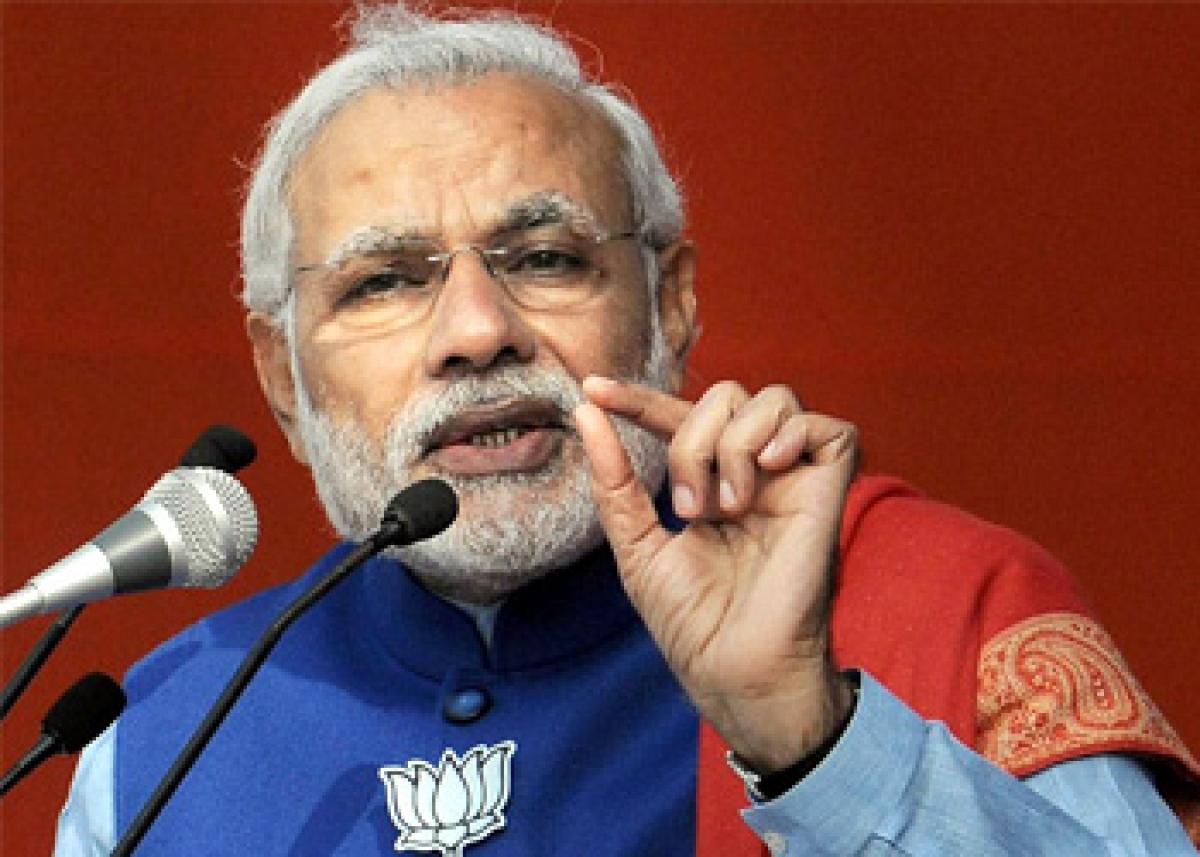Live
- World Bank okays loan for new project to boost earnings of UP farmers
- Zomato gets GST tax demand notice of Rs 803 crore
- Atul Subhash suicide: No arrests made yet, says Bengaluru Police Commissioner
- Indian agrochemicals sector to see 7-9 pc growth next fiscal: Report
- SC refers to CJI Cong leader’s petition for verification of EVMs used in Haryana polls
- To become the youngest world champion is truly a great feat: Gill congratulates Gukesh
- Case Filed Against Allu Arjun Under Four Sections
- Remembering A Visionary Leader.
- CREDAI Bengaluru seeks govt support for E-Khata issues
- Driverless Namma Metro nets revenue of `230 crore even before its launch
Just In

Ayurveda is globally relevant due to its holistic and comprehensive approach to health, Prime Minister Narendra Modi said on Tuesday.
Kozhikode (Kerala): Ayurveda is globally relevant due to its holistic and comprehensive approach to health, Prime Minister Narendra Modi said on Tuesday.
"Today, ayurveda is globally relevant because of its holistic and comprehensive approach to health. The ayurvedic 'dincharya' (daily routine) helps to bring about peace and harmony in one's life. Ayurvedic daily routines are meant to enhance the health of a human being, both mental and physical," Modi said at the ongoing Global Ayurveda Festival here.
He said non-communicable as well as lifestyle diseases like hypertension, diabetes, and cancers had become the greatest health challenges to the world community.
Modi said the escalating cost of treatment and side effects of allopathic medicines had prompted medical experts to think of widening their horizons to traditional systems of medicine.
"The World Health Organisation estimates that non-communicable diseases kill about 38 million people each year and almost three-fourths of these deaths, that is 28 million, occur in low and middle income countries. It is in managing these that ayurveda offers solutions," the prime minister said.
He said India has had a long tradition of saints and hermits who evolved the indigenous systems of health care like ayurveda, yoga and siddha.
However, Modi said, the real potential of ayurveda remained untapped due to inadequate scientific scrutiny and concerns regarding standards and quality.
If this problem is resolved, India could be a leader in making affordable, holistic healthcare available to the world, the prime minister said.
He said that his government was fully committed to the promotion of ayurveda and traditional systems of medicine.
After the BJP formed the government at the Centre, the AYUSH department was upgraded to the status of a union ministry and the National AYUSH Mission launched to promote AYUSH medical systems through cost effective services, he said.
"We are committed to promote the use of traditional medicines in our public health system through regulation of research and appropriate integration of quality products, practices and practitioners into the health system. Our efforts are to tap the real potential of ayurveda and other AYUSH systems in imparting preventive and holistic healthcare to the people," Modi said.
He also called upon young entrepreneurs to find a lot of opportunities in holistic healthcare.
"Traditional medicines are affordable to many rural people. It is available to local communities and time-tested for its safety and efficacy. Above all, it imbibes the culture and eco-system of the communities within which it grows," said Modi.
He pointed to developments in the traditional medicine sector in China and said India too should learn from the experience of other countries, and ensure that ayurveda and other Indian systems of healthcare were propagated and popularised.

© 2024 Hyderabad Media House Limited/The Hans India. All rights reserved. Powered by hocalwire.com







